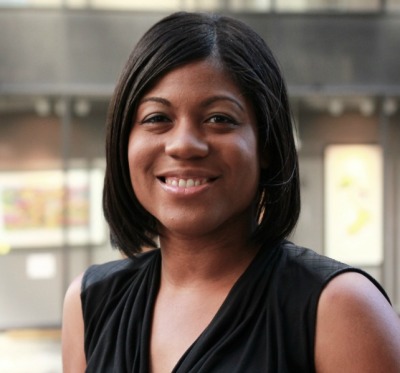Racism Will Not Disappear After Older Generation is Gone Without Change Now

"Just wait a few more generations. Soon all the old people will be gone."
"My children's generation is so much more diverse. They'll be better at this."
"The bigotry will end as the generations move further from history."
These are statements I hear pretty regularly after discussing racial injustice. They are followed with stories about how much more diverse suburban classrooms have become, or how much diversity was present at a child's birthday party. Proud parents and grandparents are quick to point to any evidence that counters the narrative of the segregation they faced as children. The difference between then and now, rightfully, offers a glimpse of hope, especially in the midst of a racialized tragedy. These statements are filled with hope that we are getting better, that our children will be different as we move further from the civil rights movement of the 60s. Those who make these pronouncements are well intentioned but ultimately naive.
The idea that we just need to wait for a generation to die, and then things will be better doesn't take into account the fullness of our racialized society in the following ways:
1. It assumes that racist ideology isn't being passed down. It's still happening. Now, I don't know how many parents are saying the words, "we are the supreme race," at the dinner table, but the ideology is certainly being passed down in quite normal and therefore insidious ways. Being taught to fear black men, avoid black women, assume Latino's are not citizens, turn Asians into model minorities, and appropriate First Nations culture while dismissing their history… are all being passed down, along with many other assumptions, stereotypes, and prejudices.
As long as our language continues to uplift one race over others, center one race instead of our combined stories, and perpetuate the idea of racial inferiority, our children will do the same. Though they may never know the name Bull Conner, they will certainly participate in the dehumanization of others, unless it is modeled for them how to be and do better.
2. It assumes racism is only interpersonal rather than both interpersonal and systemic. Even if we managed to rid ourselves of all the problematic racial language/notions around us, we still have a problem. Racism is not only about how we treat one another. There are entire systems of racial injustice that must be dismantled, recreated or obliterated altogether.
Our children will be active participants in racial injustice if we do not begin to name, and teach them how to work against injustice. The systems that uplift one race at the expense of another will survive, whether we get our language at the dinner table right or not. To ignore systemic injustice is to minimize racism and misunderstand how unjust systems will continue to thrive no matter how many generations pass. That's the purpose of a system- to continue regardless of "turnover".
3. It erases the urgency of now. Placing all of our hope in our children to "get it right" while simultaneously waiting for a generation to pass, is quite frankly not very inspiring. It seems both mean and extraordinarily passive to me. But beyond that, it also creates no sense of urgency. It assumes we can afford to wait. It accepts that injustice is okay for now. It's okay for unarmed young men to keep dying in the streets at the hands of police. Its okay for women to remain defenseless against the systems that is supposed to protect them. It's okay for our health disparities, income disparities, ownership disparities, employment disparities, environmental disparities, criminal justice disparities, mental health disparities, and educational disparities to continue.
No. No. No.
That's unacceptable. It's unacceptable right now. Today. In this moment. We must believe the loss of life (physical, mental and spiritual) is urgent.
When will we be sick and tired of waiting? When will our hopefulness turn into demands for change now? When will our own souls break wide open over the injustice perpetuated by our own generation? Will we rise to the hopes and dreams our parents had for us?
Will we choose to create better for our children instead of expecting our children to fix it?
Your children may in fact be great at navigating racial conflict. They may be anointed for reconciliation. I'm not discounting their potential contribution to the world. But what about your contribution? What if God is calling you to this moment in history?
The Church, who declares a deep belief in the Imago Dei within all people, cannot afford to be apathetic, even if that apathy is well intentioned. We must get to work while there is work to do. Too many lives hand in the balance. If we choose to remain inanimate, the same racist ideology that has caused so much tragedy in our own lives, will certainly survive into the lives of our children. It has survived hundreds of years; it can last another generation…
Unless we decide we've had enough.
Unless we decide injustice is an urgent matter now.
Unless we decide resistance is love.





























